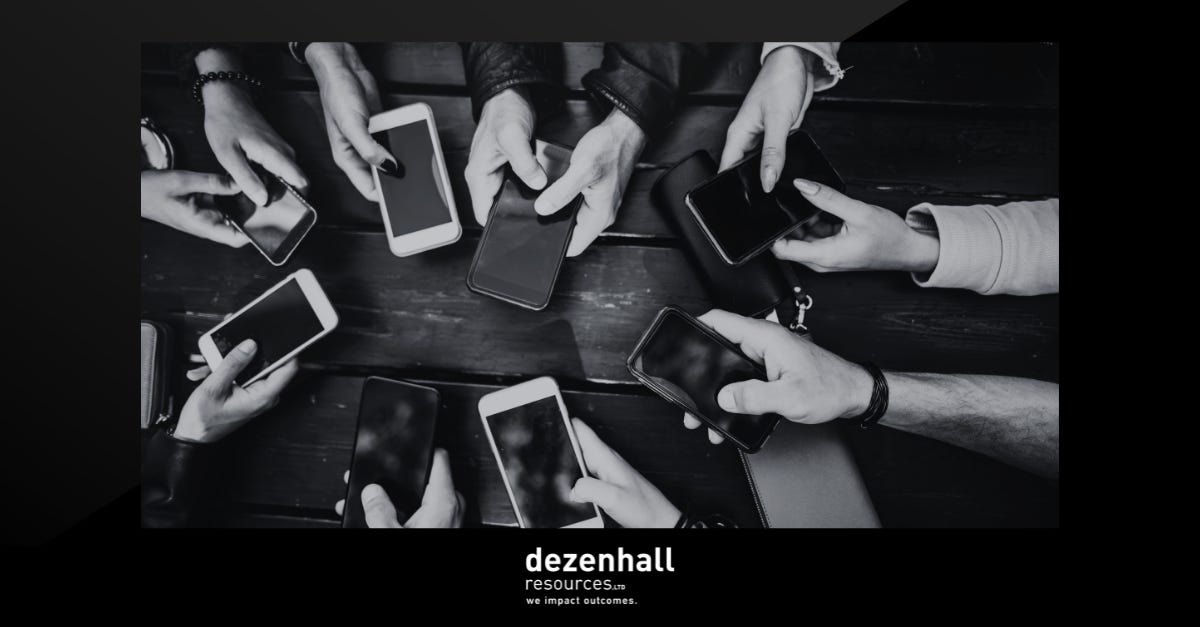Credible Brand Activism Starts Internally

Organizations today, especially those involved in brand management, face the rigorous task of understanding and managing a diverse consumer base with varying personal beliefs and values. Millennials and younger generations often view corporations through the prism of their values and political leanings. Companies are tasked with the delicate balancing act of retaining cultural relevance without isolating substantial segments of the public.
It’s also important to remember that reactions to corporate social advocacy initiatives are often nuanced and aren’t usually binary in nature. Each consumer or employee can have a unique reaction based on their beliefs, cultural backgrounds, and previous experiences. To better anticipate and manage these reactions, businesses must invest in understanding the rich diversity within their consumers and employees. This importantly includes solving biases among internal brand stewards and attempting to understand sometimes conflicting consumer values.
A consistent subset advocating for social justice—sometimes disparagingly called “the woke mob”—has come to prominence amongst this chorus of voices. However, the interpretation of “wokeness” is broad, ranging from radical liberalism to the pursuit of tangible progress. Wokeness is a complex and multi-faceted term denoting a positive awareness of social injustices and a potential excess of political correctness. In this piece, we refer to “Woke” as the political and social justice stands a company takes beyond its regular business operations, aiming to enhance its reputation in a market increasingly focused on corporate values.
Companies should anchor such actions by clearly communicating a meaningful point of view that is not performative. There is no perfect formula – what’s authentic for Google may not work for Caterpillar. At the end of the day, authenticity and action are of utmost importance.
Brand Values as Brand Culture
In the past decade, numerous brands have responded to the escalating demand for political action, going to great lengths to showcase their commitment to more progressive values such as racial diversity, LGBT inclusion, and environmental conservation. Some efforts have backfired (for instance, a Kardashian triggered backlash against law enforcement in a Pepsi advertisement), while others, like Patagonia, have considerably elevated their brand’s reputation. The biggest differentiator between success and failure is when a company begins addressing cultural matters outside a brand’s identity or domain of expertise.
Once a suitable course of action is determined, brands should act with unwavering conviction. Once this door is open, it’s difficult to close it. Importantly, the decision to address these issues should be viewed not as a temporary marketing campaign but as a core part of the company’s long-term strategy. Companies must remain consistent, engaged with societal issues relevant to the brand’s values, regularly communicate progress to stakeholders, and adapt as issues evolve. Core values seldom change, but companies must be responsive to the surrounding context.
A key challenge in weighing in on cultural issues outside your brand’s identity is that once you are in, you are all the way in. As Sonny said to the overaggressive biker gang in A Bronx Tale: “Now youse can’t leave.” Jumping in headfirst to an ongoing cultural conversation without doing the work creates an expectation among your employees and external stakeholders that you are now “part of the team.” You will be expected to keep up with the daily evolution of whatever issue it is that you decided to cannonball into. So, as we advise many of our clients to do, think before you act, have a preferably contrarian external voice to review your plan and act with conviction once you chart a suitable course of action. It is difficult to go back once you take proactive steps to enter into a political or issue-based arena. This decision should be viewed not as a temporary marketing campaign but as a core part of the company’s long-term strategy.
Specifically, the connection between a company’s brand and its market value is increasingly influenced by its societal contributions and approach to diversity, equity, and inclusion (DEI). Businesses that prioritize these values and operate in ways that foster an internal corporate culture of respect and acceptance ultimately enjoy increased market value. Corporate values have become more critical than ever, underscoring the need for companies to adopt a human, authentic, and inclusive approach.
The most significant challenge associated with “wokeness” is that it is generally employed as a one-size-fits-all proposition. DEI frameworks are measured against the desires of consumers and employees who care most about them. For companies like Patagonia, with a consumer base that cares deeply about the environment and skews left politically, this is a smart way to measure this component of reputation. For companies like Anheuser-Busch, Pepsi, and Caterpillar, there is much more diversity of thought within their respective consumer bases (and, likely, their workforce). For every positive “woke” interaction Ford has with its progressive consumers, it may alienate two potential consumers who not only deprioritize wokeness but are completely turned off by the concept and may, in turn, take to social platforms and social gatherings to express their distaste.
The old adage in public relations and marketing, “meet people where they are,” applies here. At a corporate level, Patagonia largely shares the point of view of its core consumers: The environment is dying, and companies have a major role in reversing that degradation. On the other hand, Bud Light inadvertently applied the personal views of a small number of marketing executives within the company to their entire consumer base. This backfired spectacularly.
Determining when and where to lend your company’s voice to an issue requires understanding of your customers and, just as importantly, your employees. This requires scrubbing a brand’s biases (that is, the biases of the individuals tasked with shaping and protecting the brand) and treating the beliefs and values of your stakeholders as valid and often deeply held.
In our opinion, Bud Light’s cardinal sin wasn’t that it took a marketing risk to foster transgender inclusion. It was that the company did not do the work leading up to the campaign to ease into a divisive issue and needed an understanding and care for how it its consumer base would receive it. Bud Light’s motives were laid bare a few days later when a senior marketing executive confirmed the suspicion of a large segment of the brand’s consumer base, labeling it derisively as “fratty” and “out of touch.” She lacked respect for Bud Light’s core consumers and sought to drastically change their hearts and minds to update the brand’s values. Now the brand is on life support.
Guidelines for Navigating Corporate Values in a “Woke” World
Rather than writing another predictable “Go Woke, Go Broke” screed, we aim to give brand managers and communicators a more incremental and effective playbook for using corporate influence to effect positive social change:
- Cement your internal cultural values alongside your corporate values – these should be enduring.
- Avoid shiny objects – you likely haven’t done the work to understand them.
- Execute your values at home before you preach to the public – polish your reputation in the eyes of your employees and listen to their feedback.
The third point – communicating your values to your employees first – enables you to act effectively on the first two points. Some of the most effective social progress that has taken place over the past few decades has come from a focus on inclusion and equality in hiring and promotions. The benefits of empowering people of diverse and underrepresented backgrounds are most evident in the workplace. Individual employees are seen, appreciated, and protected, while employers have unlocked untold amounts of talent previously hidden by inequality and a lack of visibility.
Practicing Progressive Policies Within the Company
Instead of preaching to the public about the need for consumers to shed their own biases, a more efficient approach is to live those values within the company. Because they’re closest to you, your employees will provide clear, decisive feedback in a way that would take months of market research outside the company. If you want to show the world your values, start by empowering your workforce to succeed regardless of race, sexuality, socioeconomic background, or religion. Give previously marginalized communities within your company the space to express themselves freely, the power to pursue success within the company, and the respect they deserve, and that will allow them to flourish.
Employees will also signal their discontent if you go too far. Some large companies have arguably over-embraced certain disruptive aspects of woke ideology, injecting politics, or the issues of the day into the workplace. This is especially important for companies with socioeconomically diverse workforces – say, manufacturing companies, where the white-collar workers may have different attitudes than hourly plant workers. Living your corporate values in full view of your employees equally creates a vital check against overdoing it.
Tactically, everything starts with credible and authentic communication with internal stakeholders. A clear, concise, and straightforward dialogue will achieve the type of penetration needed for internal buy-in.
Internal communications, including HR policies, are often the most overlooked tactics in a communicator’s toolbox, yet they are more important than ever. This channel allows you to highlight inspiring stories within your organization while directly engaging your team, bypassing traditional media, and controlling the context in which your message is delivered. This forum lets you to gently introduce traditionally controversial issues, fostering more dialogue than a sermon. By embodying your values rather than merely stating them, organizations can credibly demonstrate to those closest to them that certain progressive policies are true priorities for the company.
Do not be tempted to take this to an extreme and get over your skis – focus on equality of opportunity, safe spaces for all employees, making your company a place where a diverse group of people all feel seen, protected, and empowered, this can pay dividends toward your reputational enterprise value. This can be done in a controlled, reasonable environment that keeps you off the bad side of the trending social media pages while giving brand stewards real, credible feedback on where to listen and learn and, most importantly, when it is the right time to take a stand.


